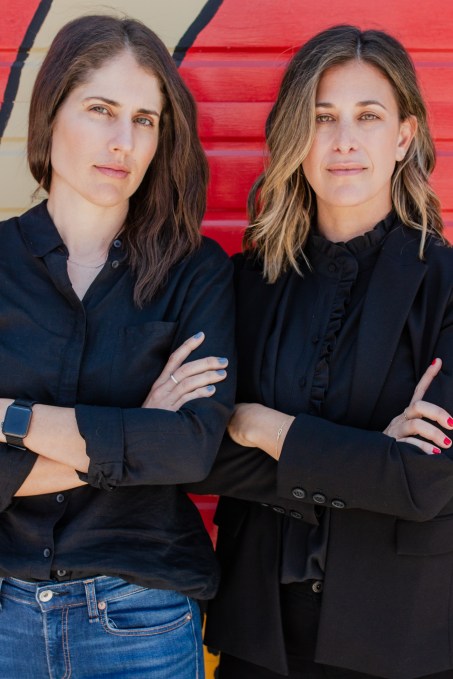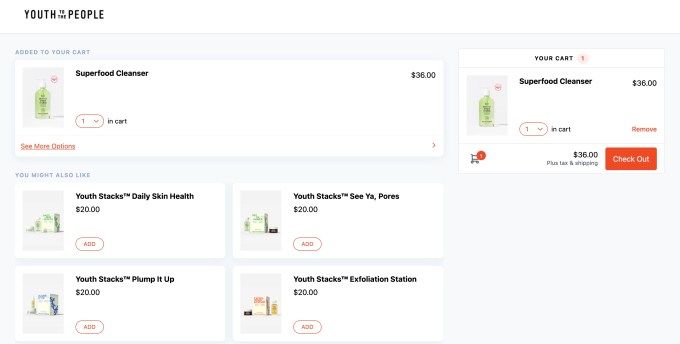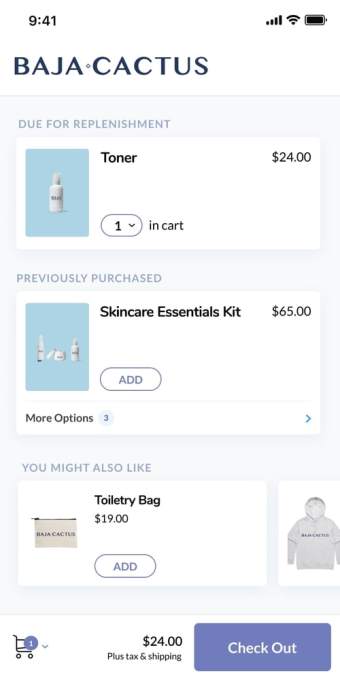Subscriptions have become a popular way to pay for digital services, like Netflix or Spotify, but they haven’t yet taken off as a means of reordering your everyday items or other household essentials. Retailers, including Amazon, have tried shifting consumers to a subscription model for these sorts of purchases — even by offering discounts. Still, consumers have largely balked at the idea of forced reordering on a fixed schedule. A startup called Repeat believes it may have figured out a better solution. Instead of trying to lock consumers into subscriptions, Repeat analyzes consumer purchase behavior to nudge customers when it’s time to reorder. It then provides them with a personalized shopping cart to make the reordering experience fast and painless.
This service is now being used by 67 companies in the consumer packaged goods (CPG) market, including brands like By Humankind (personal care), Jot (coffee), Vegamour (haircare), Youth to the People (skincare), Osea (skincare), hydrant (rapid hydration packets), Twice (toothpaste), lemon perfect (flavored water), and many others.
Today, Repeat is announcing its $6 million Series A, led by Battery Ventures. Seed investors Mucker Capital and Harlem Capital also invested in the round. With the round’s close, Battery’s general partner Neeraj Agrawal, whose background is in enterprise software-as-a-service businesses, is joining Repeat’s board.

Repeat co-founders Sarah Wissel (L) and Kim Stiefel (R)
The idea to tackle e-commerce’s replenishment problem came about after Repeat’s co-founders Kim Stiefel and Sarah Wissel tried launching their own direct-to-consumer apparel brand, UNDR, focused on refreshing the basics — like socks, tees, and underwear. Having spend their careers in the marketing and ad tech world, they believed they would be able to put their experience to work to grow their new business.
After launching a quarterly subscription for t-shirts, the founders soon discovered not only how hard it was to get a brand-new brand off the ground, but also how getting customers to commit to ongoing purchases was even harder. From their customer feedback, the founders learned that most consumers actually don’t like the experience of reordering household items. Customers told them it doesn’t always make sense to reorder products on a fixed schedule.
Unlike Netflix, where you’re paying for the rights to access a broad catalog on an ongoing basis, there are times when you’ll use your household products more quickly or more slowly. That means you’ll sometimes end up receiving items too soon when you’ve ordered them on subscription. That’s not ideal; nor is it very eco-friendly. Other times, you may run out before your scheduled delivery is due to arrive. That’s also a problem.
“We should have known that,” admits Stiefel, now Repeat’s CEO, after hearing that customers didn’t like subscriptions. “We asked ourselves if we actually subscribe to any products, and it turns out, the answer was ‘no.'”
The founders decided to scrap their subscription in favor of a new idea. Instead of forcing consumers to subscribe on a schedule, they would “nudge” customers to reorder during what they determined would would be the perfect window, based on past order history.

Image Credits: Repeat
After experimenting with personalized reminders for their own brand for a year, Stiebel and Wissel decided to pivot their startup so they could offer this service to any e-commerce CPG company.
Today, any brand that sells a replenishable or consumable product can use Repeat to turn their one-time buyer into a repeat customer. To do so, Repeat uses a combination of logic, where it analyzes all the company’s a la carte purchase behavior to make sense of the general replenishment intervals on a per-SKU basis. It then leverages that logic to nudge customers when it’s time to reorder by sending an email or text with a link to what Repeat calls its “replenishment cart.” The customer can choose to snooze the reminder or they can click through to checkout.
This replenishment cart is a special shopping cart that’s personalized to the individual customer and pre-filled with the product or products they’re due to repurchase, as well as other suggestions. But unlike a typical checkout experience, the customer can adjust the merchandise the cart contains — for example, by opting for a different flavor or scent for their product, or opting for a larger size, among other things.
As the customer continues to interact with Repeat’s reminders and cart, the service gets smarter about understanding that customer’s unique reordering intervals, so its nudges also get smarter. In time, Repeat envisions offering a universal cart where customers can reorder from across their favorite CPG brands in one place.

Image Credits: Repeat
“There’s a lot of logic that goes into making that cart experience work as well as it does,” notes Stiebel. “For example, the cart converts at around 25 percent on average. Some brands are seeing 40, or 45 percent conversion on that cart, and we see that people check out oftentimes in less than 15 seconds on that cart. And I think that’s really the underlying magic — that, in combination with the logic, is the underlying magic of Repeat,” she adds.
There is, of course, the challenge of getting its nudges exactly right. If Repeat hits up customers at the wrong time, it could be perceived as an annoyance and customers might opt out of the notifications.
Repeat currently generates revenue through a monthly SaaS (software-as-a-subscription) fee, and as a percentage of the revenue its cart drives. For brands that drive less than 2,000 a la carte, non-subscription orders per month, Repeat would charge $99 per month plus 5% of the revenue it drives. And for brands that are driving more than 10,000 a la carte, non-subscriptions orders per month, Repeat charges $499 per month, plus 5% of the revenue it drives. The company isn’t disclosing its own revenue figures, however.
L.A.-based Repeat says it plans to use the new funds to hire across all roles, including in engineering, product, sales, marketing and growth. The startup began the year with just 3 employees, but hopes to be at around 15 to 20 by the end of the year by expanding its team that’s distributed across the U.S.
The company will also use the capital to work on scaling the business. For example, it recently launched QR codes that allow anyone to be redirected to a Repeat cart — even first-time shoppers who discover a brand through a friend, and scan the product to order one of their own.
Over time, Repeat believes it can change the way CPG subscriptions work.
“The problem with subscription today is that it’s fixed, and time-based and rigid, and not rooted in any kind of real consumption cadence,” says Stiebel.
“Because Repeat focuses on that all a carte reordering experience, and because we’re looking at repeat behavior across individual product SKUs, we actually know a tremendous amount about consumption behavior across every category of CPG. I think what you’ll see from us in the future is being able to leverage that data to offer more flexible dynamic subscription experiences,” she says.
https://ift.tt/36lgQlr Repeat raises $6 million Series A for its service that makes reordering favorite products easier https://ift.tt/3jStYXw













0 comments
Post a Comment